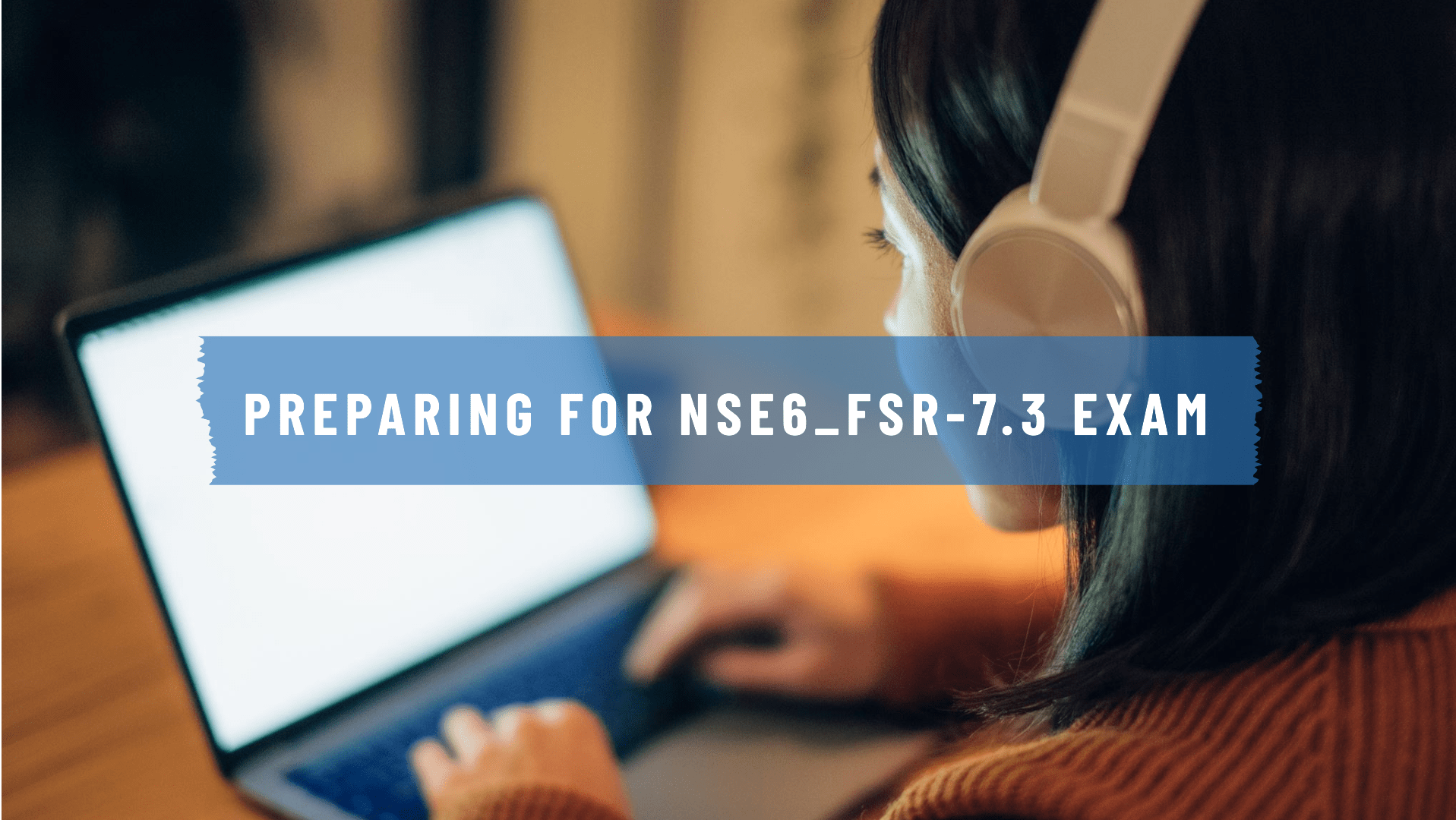
Fortinet NSE6_FSR-7.3 Exam: A Path to Becoming an NSE 6 Network Security Specialist
The NSE6_FSR-7.3 exam, officially known as the Fortinet NSE 6 – FortiSOAR 7.3 Administrator, is designed for individuals seeking advanced knowledge and skills in deploying and managing FortiSOAR, Fortinet’s Security Orchestration, Automation, and Response (SOAR) platform. This certification is part of the NSE 6 Network Security Specialist program, which equips network security professionals with the tools and insights required to handle complex security challenges using Fortinet solutions.
Importance of the NSE6_FSR-7.3 Certification
The NSE6_FSR-7.3 certification holds significant value for IT professionals in cybersecurity roles. FortiSOAR is increasingly used by organizations to automate and manage security tasks, and this exam certifies a candidate’s ability to configure and deploy this technology effectively. By obtaining this certification, individuals validate their expertise in orchestrating, managing, and troubleshooting security processes, enhancing their credentials and positioning themselves as knowledgeable security practitioners.
Target Audience for the NSE6_FSR-7.3 Exam
The NSE6_FSR-7.3 exam targets professionals who are already familiar with Fortinet solutions or have experience in network security and administration. It is ideally suited for network engineers, system administrators, and security operations center (SOC) personnel who are responsible for automating and streamlining security operations within their organizations. As the NSE6_FSR-7.3 exam is an advanced-level exam, a foundational knowledge of Fortinet products and network security principles is recommended before attempting it.
Key Skills Tested in the NSE6_FSR-7.3 Exam
To successfully pass the NSE6_FSR-7.3 exam, candidates must demonstrate a comprehensive understanding of FortiSOAR and its functions. The exam evaluates the following key skill areas:
- Installation and Configuration: Candidates must be proficient in installing FortiSOAR and configuring its essential settings, ensuring the platform is set up to meet organizational requirements.
- Playbook Management: Playbooks are automated workflows in FortiSOAR. The exam tests a candidate’s ability to create, customize, and manage playbooks for automating security responses to various incidents.
- Integration and Customization: FortiSOAR can integrate with various security tools, and candidates are tested on their knowledge of integrating third-party products, customizing connectors, and enhancing the functionality of FortiSOAR.
- User Management and Access Control: Effective management of users and access permissions is crucial in any security platform. The exam assesses the candidate’s knowledge of setting user roles, access permissions, and managing security policies within FortiSOAR.
- Incident Management: Candidates should understand the lifecycle of incident management in FortiSOAR, including creating, managing, and resolving incidents efficiently.
- Reporting and Dashboard Creation: The ability to generate comprehensive reports and create insightful dashboards is another critical area tested in the exam. Candidates need to be skilled in configuring dashboards and producing relevant reports for analysis and decision-making.
Format of the Fortinet NSE6_FSR-7.3 Exam
The NSE6_FSR-7.3 exam format generally includes multiple-choice and scenario-based questions that assess both theoretical knowledge and practical skills. Candidates should be prepared to answer questions based on real-world scenarios to demonstrate their ability to apply FortiSOAR functionalities effectively. The passing score and time limit may vary, and candidates should consult the official Fortinet website for the most current exam details.
Benefits of Obtaining the NSE6 FSR 7 3 Certification
Achieving the NSE6_FSR-7.3 certification offers several career advantages:
- Enhanced Skill Set: The certification equips candidates with specialized skills in security automation, making them more effective in handling advanced security operations.
- Career Growth: Certified professionals are often considered for advanced roles in network security, cybersecurity operations, and SOC management.
- Increased Employability: Organizations value Fortinet-certified individuals as they are recognized for their technical expertise in security orchestration, automation, and response.
- Recognition within the Industry: Being NSE6_FSR-7.3 certified showcases dedication to professional development and expertise in a specialized area of network security.
Fortinet provides a wealth of resources designed to help you fully prepare for the NSE6_FSR-7.3 exam. With high-quality NSE6_FSR-7.3 exam dumps and carefully crafted practice questions, you can boost your confidence and equip yourself to pass the exam on your first try. Fortinet’s materials give you the knowledge and hands-on experience needed to approach the exam with a solid understanding, ensuring you’re ready for success from the start.
NSE6_FSR-7.3 Sample Exam Questions and Answers
| QUESTION: 1 |
| What are two features of the FortiSOAR perpetual trial license? (Choose two.). Option A: It is a multi-tenant type license. Option B: It provides access to FortiSOAR for a limited amount of time per day. Option C: It has restrictions on the number of users. Option D: It has restrictions on the number of actions that can be performed. |
| Correct Answer: C,D |
| Explanation/Reference: The FortiSOAR perpetual trial license includes limitations on both the number of users and the number of actions that can be performed. These restrictions are in place to provide prospective users with a functional evaluation of FortiSOAR while limiting its usage in a production environment. The trial license does not support multi-tenancy and restricts the overall capacity for scaling, making it suitable only for testing and familiarization with FortiSOAR’s capabilities. |
| QUESTION: 2 |
| Which edition of license, when deployed, will serve as a primary node in a distributed deployment? Option A: MT Option B: MT_Tenant Option C: MT_RegionalSOC Option D: Enterprise |
| Correct Answer: A |
